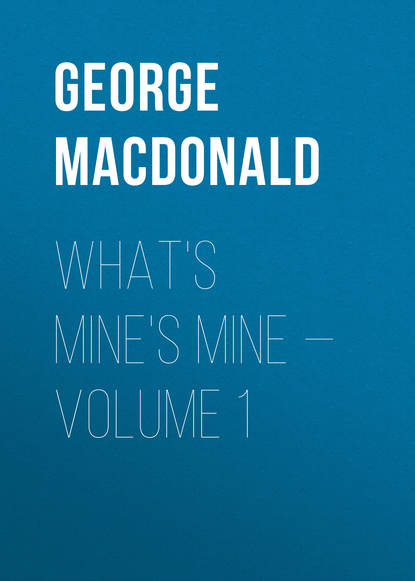По всем вопросам обращайтесь на: info@litportal.ru
(©) 2003-2024.
✖
What's Mine's Mine — Volume 1
Настройки чтения
Размер шрифта
Высота строк
Поля
"Did you ever see London?" he asked.
"We generally live there half the year."
"Pardon me; I did not ask if you had ever been to London," said Ian; "I asked if you had ever seen London."
"I know the west end pretty well."
"Did it ever strike you as very large?"
"Perhaps not; but the west end is only a part of London."
"Did you ever see London from the top of St. Paul's?"
"No."
"Did you ever see it from the top of Hampstead heath?"
"I have been there several times, but I don't remember seeing London from it. We don't go to London for the sights."
"Then you have not seen London!"
Mercy was annoyed. Ian did not notice that she was, else perhaps he would not have gone on—which would have been a pity, for a little annoyance would do her no harm. At the same time the mood was not favourable to receiving any impression from the region of the things that are not seen. A pause followed.
"It is so delightful," said Ian at length, "to come out of the motion and the heat and the narrowness into the still, cold greatness!"
"You seemed to be enjoying yourself pretty well notwithstanding, Captain Macruadh!"
"What made you think so?" he asked, turning to her with a smile.
"You were so merry—not with me—you think me only a stupid lowland girl; but the other young persons you danced with, laughed very much at things you said to them."
"You are right; I did enjoy myself. As often as one comes near a simple human heart, one's own heart finds a little room."
Ere she knew, Mercy had said—
"And you didn't find any room with me?"
With the sound of her words her face grew hot, as with a furnace-blast, even in the frosty night-air. She would have covered what she had said, but only stammered. Ian turned, and looking at her, said with a gentle gravity—
"You must not be offended with me! I must answer you truly.—You do not give me room: have you not just told me you never longed for any yourself?"
"One ought to be independent!" said Mercy, a little nettled.
"Are you sure of that? What is called independence may really be want of sympathy. That would indicate a kind of loneliness anything but good."
"I wish you would find a less disagreeable companion then!—one that would at least be as good as nobody! I am sorry I don't know how to give you room. I would if I could. Tell me how."
Again Ian turned to her: was it possible there were tears in her voice? But her black eyes were flashing in the starlight!
"Did you ever read Zanoni?" he asked.
"I never heard of it. What is it?"
"A romance of Bulwer's."
"My father won't let us read anything of Bulwer's. Does he write very wicked books?"
"The one I speak of," said Ian, "is not wicked, though it is full of rubbish, and its religion is very false."
Whether Mercy meant to take her revenge on him with consciously bad logic, I am in doubt.
"Captain Macruadh! you astonish me! A Scotchman speak so of religion!"
"I spoke of the religion in that book. I said it was false—which is the same as saying it was not religion."
"Then religion is not all true!"
"All true religion is true," said Ian, inclined to laugh like one that thought to catch an angel, and had clutched a bat! "I was going on to say that, though the religion and philosophy of the book were rubbish, the story was fundamentally a grand conception. It puzzles me to think how a man could start with such an idea, and work it out so well, and yet be so lacking both in insight and logic. It is wonderful how much of one portion of our nature may be developed along with so little of another!"
"What is the story about?" asked Mercy.
"What I may call the canvas of it, speaking as if it were a picture, is the idea that the whole of space is full of life; that, as the smallest drop of water is crowded with monsters of hideous forms and dispositions, so is what we call space full of living creatures,—"
"How horrible!"
"—not all monsters, however. There are among them creatures not altogether differing from us, but differing much from each other,—"
"As much as you and I?"
"—some of them lovely and friendly, others frightful in their beauty and malignity,—"
"What nonsense!"
"Why do you call it nonsense?"
"How could anything beautiful be frightful?"
"I ought not to have said BEAUTIFUL. But the frightfullest face I ever saw ought to have been the finest. When the lady that owned it spoke to me, I shivered."
"But anyhow the whole thing is nonsense!"
"How is it nonsense?"
"Because there are no such creatures."
"How do you know that? Another may have seen them though you and I never did!"
"You are making game of me! You think to make me believe anything you choose!"











